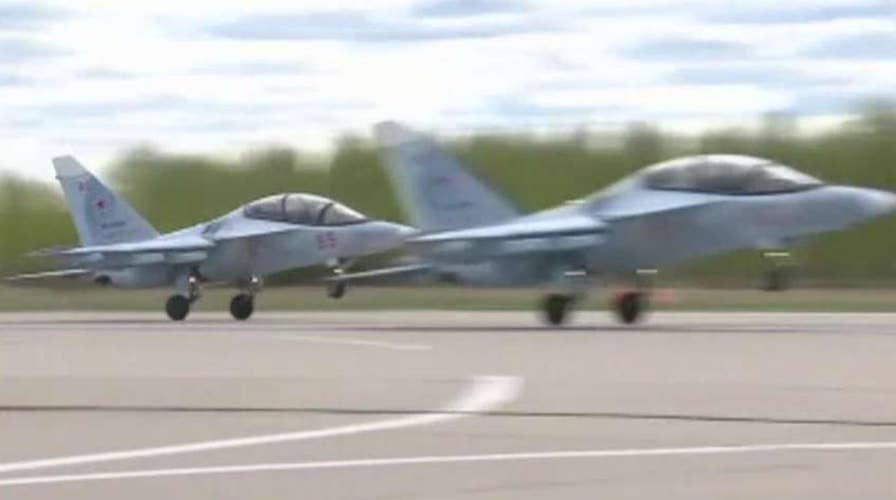Russia seeks ban of military aircraft over Syria safe zones
Fox News military analyst Gen. Jack Keane gives his take
The top U.S. military officer General Joseph Dunford and Russia’s military chief of staff affirmed their commitment to avoid clashes in the crowded airspace over Syria, the Pentagon said Saturday.
Dunford, the chairman of the Joint Chiefs of Staff and General Valery Gerasimov chatted on the phone hours after a new Syria ceasefire plan creating “de-escalation” zones went into effect with the backing of Russia, Iran and NATO-ally Turkey.
The two generals agreed to maintain their “commitment to de-conflicting” their respective military operations in the war-ravaged country, Dunford spokesman Capt. Greg Hicks said in a brief statement.
Dunford and Gerazimov also discussed the new ceasefire plan and “both also agreed to maintain regular contact,” Hicks said.
Russia scrapped the 2015 airspace safety agreement after the Pentagon conducted a cruise missile strike in response to Syrian President Bashar al-Assad’s deadly chemical attack in Syria's Idlib province last month.
The establishment of de-escalation zones is the latest international attempt to reduce violence amid a six-year civil war that has left more than 400,000 dead, and is the first to envisage armed foreign monitors on the ground in Syria. The United States is not party to the Astana agreement and the Syrian rebels have not signed on to the deal.
The U.S. military has conducted air strikes in the past in one of the proposed 'de-escalation' zones in Idlib, home to a group affiliated with the al-Qaeda terror group.
The State Department expressed concern over the new ceasefire agreement because of Iran's involvement.
"We continue to have concerns about the Astana agreement, including the involvement of Iran as a so-called 'guarantor'," the State Department said in a statement Thursday. "Iran's activities in Syria have only contributed to the violence, not stopped it."
The Associated Press contributed to this report.







































